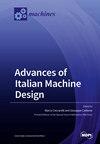Diagnosing Faults in Different Technical Systems: How Requirements for Diagnosticians Can Be Revealed by Comparing Domain Characteristics
IF 2.1
3区 工程技术
Q3 ENGINEERING, ELECTRICAL & ELECTRONIC
引用次数: 0
Abstract
In complex work domains, not all possible faults can be anticipated by designers or handled by automation. Humans therefore play an important role in fault diagnosis. To support their diagnostic reasoning, it is necessary to understand the requirements that diagnosticians face. While much research has dealt with identifying domain-general aspects of fault diagnosis, the present exploratory study examined domain-specific influences on the requirements for diagnosticians. Scenario-based interviews were conducted with nine experts from two domains: the car domain and the packaging machine domain. The interviews revealed several factors that influence the requirements for successful fault diagnosis. These factors were summarized in five categories, namely domain background, technical system, typical faults, diagnostic process, and requirements. Based on these factors, we developed the Domain Requirements Model to predict requirements for diagnosticians (e.g., the need for empirical knowledge) from domain characteristics (e.g., the degree to which changes in inputs are available as domain knowledge) or characteristics of the diagnostic process (e.g., the extent of support). The model is discussed considering the psychological literature on fault diagnosis, and first insights are provided that show how the model can be used to predict requirements of diagnostic reasoning beyond the two domains studied here.诊断不同技术系统中的故障:如何通过比较领域特征揭示对诊断人员的要求
在复杂的工作领域中,并非所有可能出现的故障都能被设计人员预料到或由自动化设备处理。因此,人类在故障诊断中扮演着重要角色。为了支持他们的诊断推理,有必要了解诊断人员所面临的要求。许多研究都涉及故障诊断领域的一般方面,而本探索性研究则考察了特定领域对诊断人员要求的影响。研究人员对来自两个领域(汽车领域和包装机械领域)的九位专家进行了基于情景的访谈。访谈揭示了影响成功故障诊断要求的几个因素。这些因素被归纳为五个类别,即领域背景、技术系统、典型故障、诊断过程和要求。基于这些因素,我们开发了领域需求模型,以便从领域特征(如输入变化可作为领域知识的程度)或诊断过程特征(如支持程度)预测对诊断人员的需求(如对经验知识的需求)。在讨论该模型时,我们参考了有关故障诊断的心理学文献,并提出了一些初步见解,说明如何利用该模型预测超出本文所研究的两个领域的诊断推理要求。
本文章由计算机程序翻译,如有差异,请以英文原文为准。
求助全文
约1分钟内获得全文
求助全文
来源期刊

Machines
Multiple-
CiteScore
3.00
自引率
26.90%
发文量
1012
审稿时长
11 weeks
期刊介绍:
Machines (ISSN 2075-1702) is an international, peer-reviewed journal on machinery and engineering. It publishes research articles, reviews, short communications and letters. Our aim is to encourage scientists to publish their experimental and theoretical results in as much detail as possible. There is no restriction on the length of the papers. Full experimental and/or methodical details must be provided. There are, in addition, unique features of this journal: *manuscripts regarding research proposals and research ideas will be particularly welcomed *electronic files or software regarding the full details of the calculation and experimental procedure - if unable to be published in a normal way - can be deposited as supplementary material Subject Areas: applications of automation, systems and control engineering, electronic engineering, mechanical engineering, computer engineering, mechatronics, robotics, industrial design, human-machine-interfaces, mechanical systems, machines and related components, machine vision, history of technology and industrial revolution, turbo machinery, machine diagnostics and prognostics (condition monitoring), machine design.
 求助内容:
求助内容: 应助结果提醒方式:
应助结果提醒方式:


